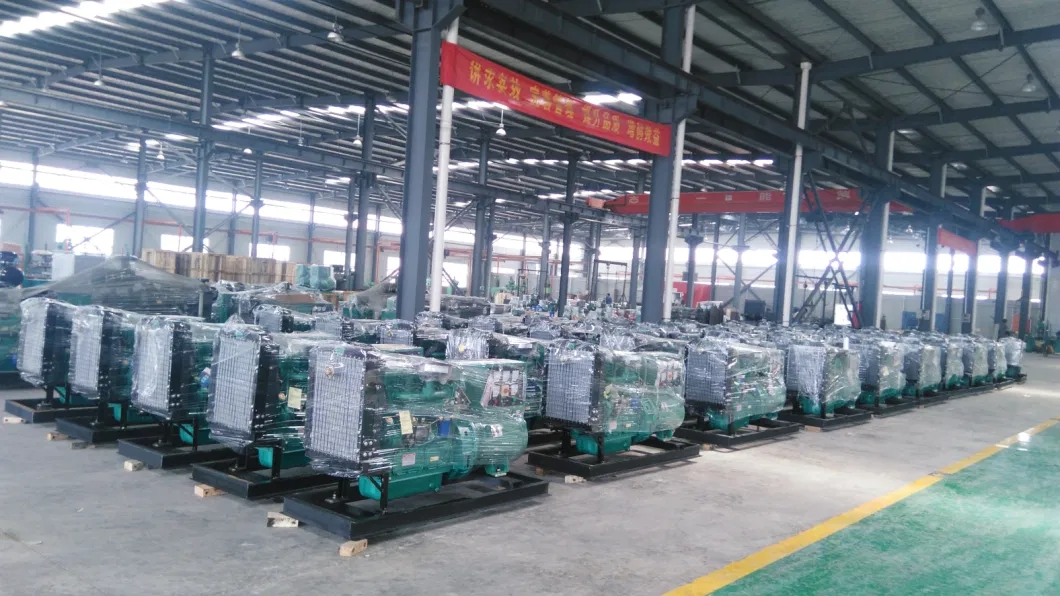Introduction
In today's modern world, electricity plays a crucial role in powering essential infrastructure such as hospitals, data centers, telecommunications networks, and emergency services. Any interruption in power supply to these critical facilities can have severe consequences, including loss of life, data, and productivity. To mitigate the risks associated with power outages, many organizations rely on diesel generators as a reliable backup power source. In this article, we will explore the importance of diesel generators for critical power supply and how they ensure uninterrupted operations during emergencies.
Importance of Diesel Generators for Critical Infrastructure
1. Reliability and Durability
Diesel generators are known for their robustness and reliability, making them ideal for providing backup power to critical infrastructure. Unlike other types of generators that rely on gasoline or propane, diesel generators are more fuel-efficient and can run continuously for long periods. This reliability is essential for critical facilities that cannot afford any downtime due to power outages.
2. Quick Start-Up Time
One of the key advantages of diesel generators is their quick start-up time. In the event of a power outage, diesel generators can be up and running within seconds, providing immediate power to critical infrastructure. This rapid response time is crucial for facilities where even a few seconds of downtime can have serious consequences.
3. Continuous Power Supply
Diesel generators are capable of providing continuous power supply for extended periods, making them ideal for critical infrastructure that requires uninterrupted operations. Whether it's a hospital performing life-saving surgeries or a data center storing critical information, diesel generators ensure that these facilities remain operational even during extended power outages.
4. Fuel Availability and Storage
Diesel fuel is widely available and can be easily stored for long periods without degradation, making it a reliable fuel source for diesel generators. Critical facilities can maintain a sufficient supply of diesel fuel on-site to ensure uninterrupted power supply during emergencies. Additionally, diesel fuel has a longer shelf life compared to gasoline or propane, further enhancing the reliability of diesel generators.
5. Scalability and Redundancy
Diesel generators can be easily scaled to meet the power requirements of different critical infrastructure facilities. Organizations can install multiple diesel generators in parallel to provide redundancy and ensure that there is always a backup power source available. This scalability and redundancy are essential for critical facilities that cannot afford any disruptions to their power supply.
6. Low Maintenance Requirements

Diesel generators are known for their low maintenance requirements, making them a cost-effective backup power solution for critical infrastructure. With proper maintenance and regular servicing, diesel generators can provide reliable power supply for years without major breakdowns. This reliability and ease of maintenance make diesel generators a preferred choice for organizations looking to protect their critical operations.
Case Studies: Real-World Applications of Diesel Generators for Critical Power Supply
1. Hospital Emergency Backup Power
Hospitals rely on a consistent power supply to operate life-saving equipment, lighting, and HVAC systems. In the event of a power outage, diesel generators provide backup power to ensure that critical medical procedures can continue without interruption. Diesel generator for islanding operation have dedicated diesel generators that can power the entire facility for an extended period, ensuring the safety and well-being of patients and medical staff.
2. Data Center Operations
Data centers are critical infrastructure facilities that store and process vast amounts of digital information. Any interruption in power supply to a data center can result in data loss, system failures, and downtime for online services. Diesel generators are commonly used in data centers to provide backup power during grid failures or emergencies, ensuring that data processing and storage operations remain uninterrupted.
3. Telecommunications Networks
Telecommunications networks play a vital role in connecting people and facilitating communication during emergencies. Diesel generators are deployed at cell towers, data centers, and central offices to ensure that telecommunications services remain operational even during power outages. This backup power infrastructure is essential for maintaining communication channels during natural disasters, blackouts, or other emergencies.
4. Emergency Response Services
Emergency response services such as fire departments, police stations, and emergency medical services rely on uninterrupted power supply to respond to emergencies effectively. Diesel generators are installed at these facilities to ensure that critical communication systems, lighting, and equipment remain operational during power outages. This backup power infrastructure is essential for ensuring the safety and security of the community during emergencies.
Conclusion
In conclusion, diesel generators play a crucial role in ensuring uninterrupted power supply to critical infrastructure facilities such as hospitals, data centers, telecommunications networks, and emergency services. Their reliability, quick start-up time, continuous power supply capabilities, fuel availability, scalability, and low maintenance requirements make diesel generators an ideal backup power solution for organizations seeking to protect their operations during emergencies. By investing in diesel generators, organizations can safeguard their critical infrastructure and ensure that essential services remain operational even in the face of power outages and natural disasters.
